What if learners had a user’s manual for their minds?
Project Description
What if learners had a user’s manual for their minds? How might it change their learning and performance—in life, at school, and on the job? What if they could modify these contexts to support their best learning? This project seeks to help learners, as embodied in social and emotional beings, understand the cognitive architecture of their minds to bring their learning and work to the next level and to function effectively in a dynamic and complex workforce landscape. Research has demonstrated persuasively that effective thinking can be taught. However, the teaching of thinking has failed to produce the broad benefits to society that one might expect. This work seeks to align the skills of thinking with cognitive neuroscience findings and to make the resulting approaches more accessible and relevant to the most vulnerable populations.
The NLL Moves Project is developing and testing moves that Next Level Learners can engage in to support their most effective learning and work performance. Using a mixed methods approach, we are studying pre- to post-intervention changes in how learners frame and process tasks involved in thinking, learning, and workforce performance. For instance, in one study, we designed two versions of a reflection survey to be used as part of a summer internship program for opportunity youth at a large consulting firm. We are examining how the interns’ reflections changed over time and how their reflections varied depending on whether their version of the survey explicitly emphasized elements of contextualized agency.
Publications
Academic Publications

Learning Like “Fast Fish”: A Research Review on the Promise of Contextualized Agency
Leveraging the Power of Metacognition and Contextualized Agency for Workplace Learning
Research Briefs
Applying Learning Sciences Research to Learning and Workforce Development for Next Level Learning Brief Series
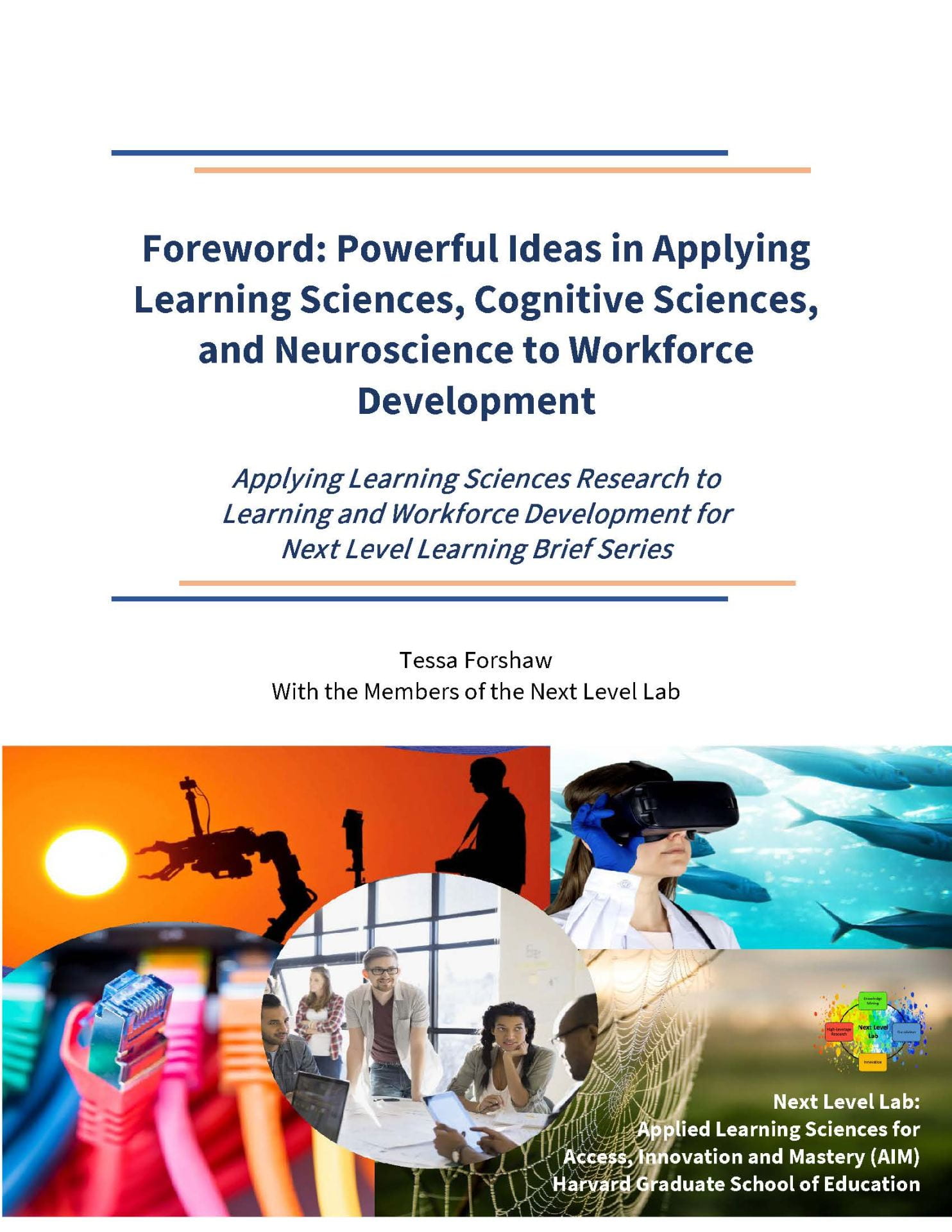
Powerful Ideas in Applying Learning Sciences, Cognitive Sciences, and Neuroscience to Workforce Development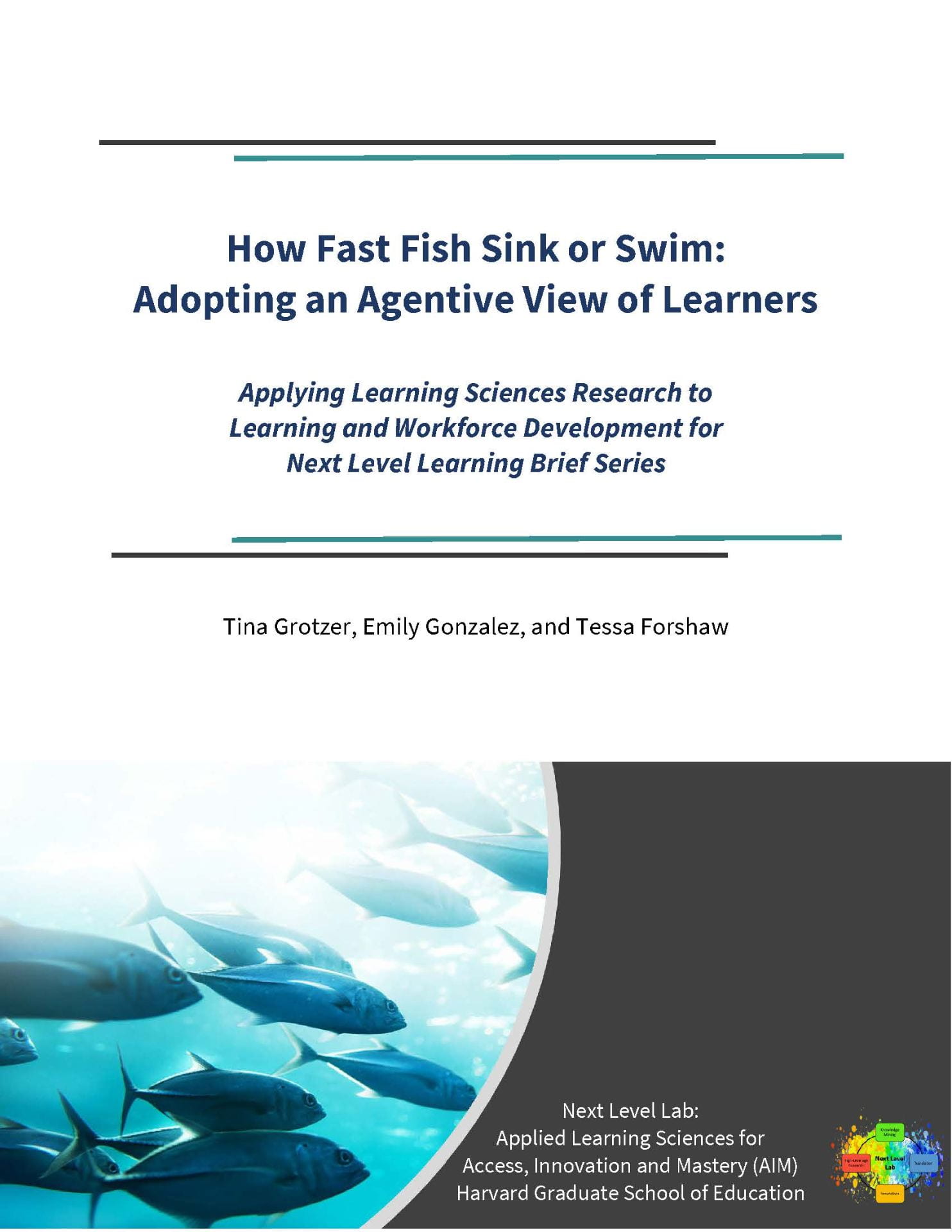
How Fast Fish Sink or Swim: Adopting an Agentive View of Learners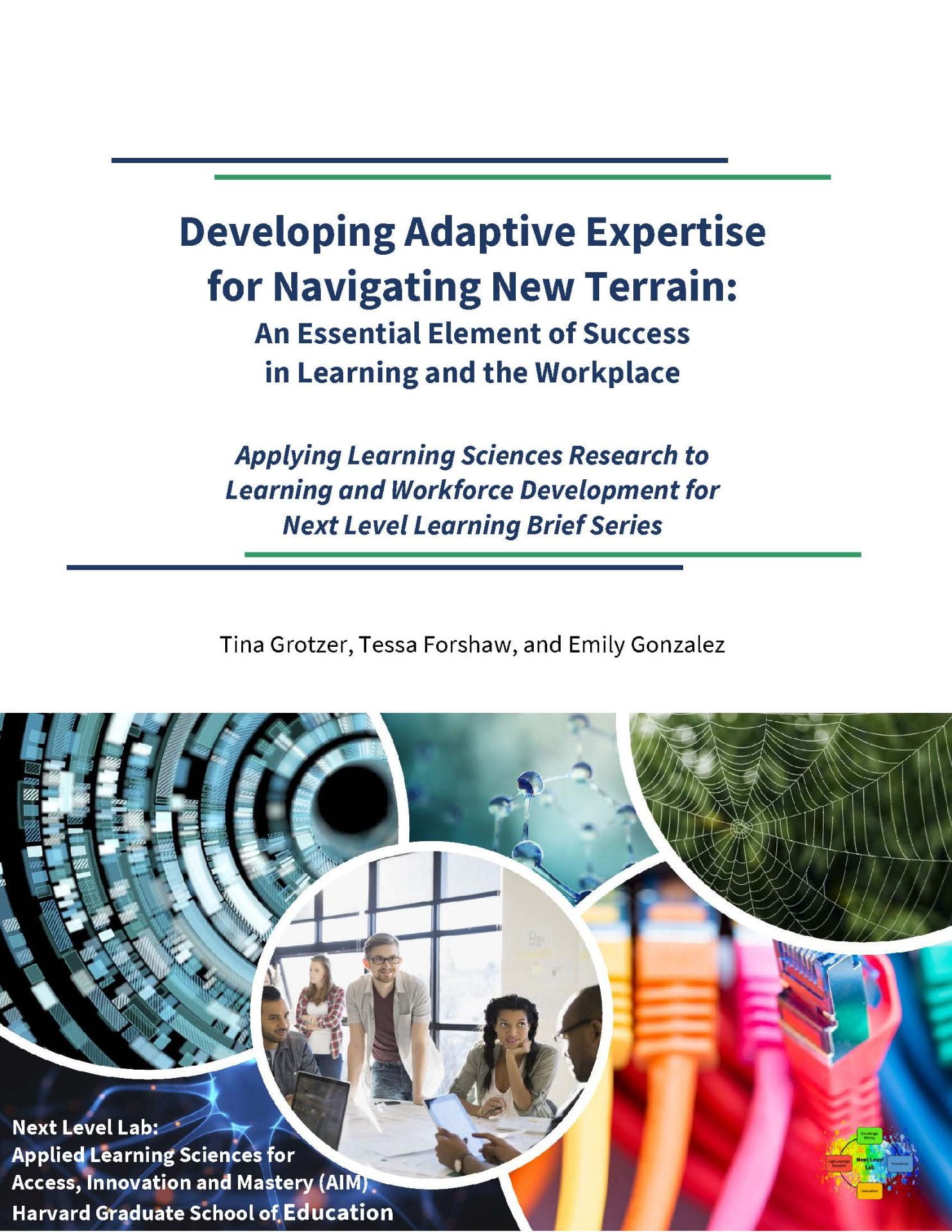
Developing Adaptive Expertise for Navigating New Terrain: An Essential Element of Success in Learning and the Workplace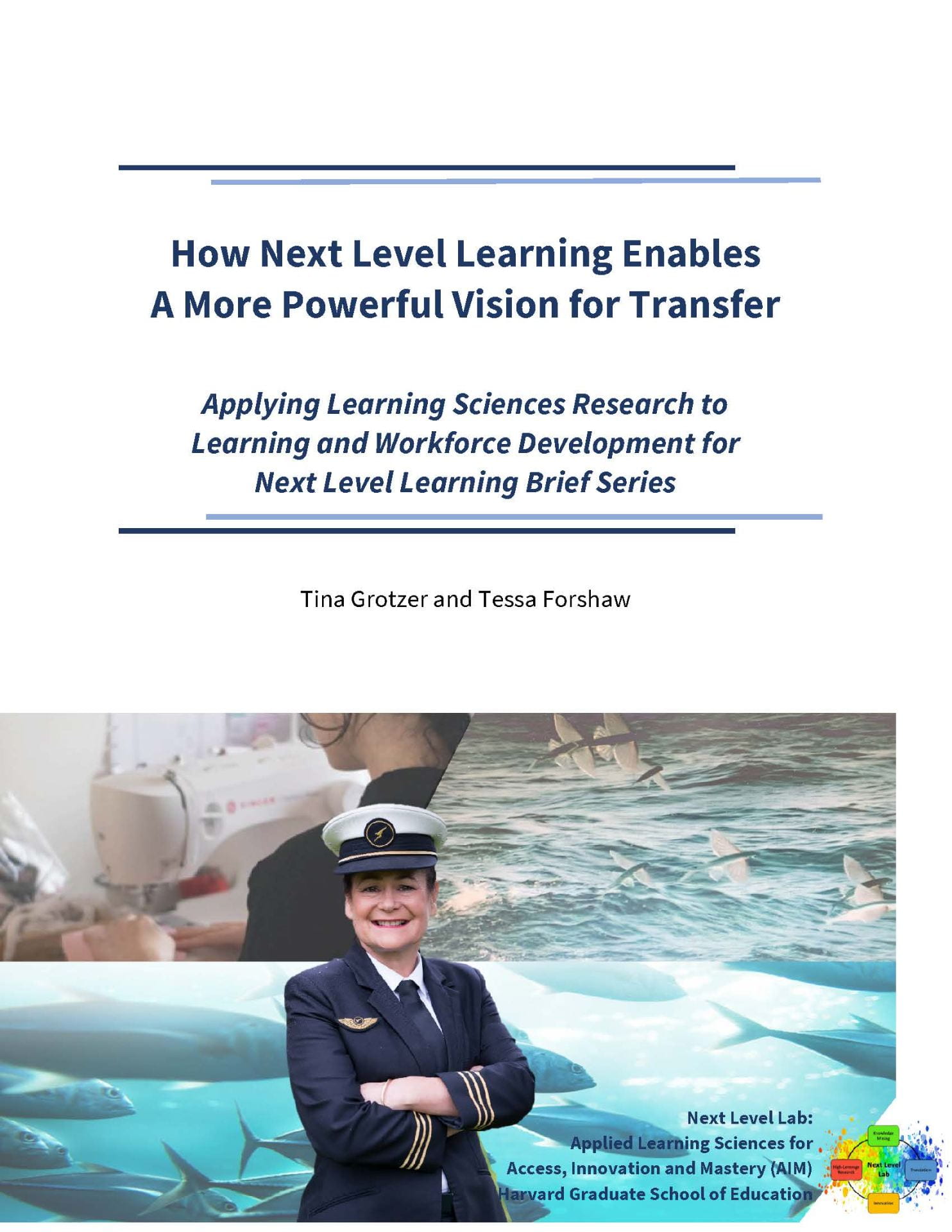
How Next Level Learning Enables A More Powerful Vision for Transfer
Practitioner-Facing Articles and Blog Posts
From our Teaching Times series on Next Level Learning:
 What is Next Level Learning and Why does it Matter?
What is Next Level Learning and Why does it Matter?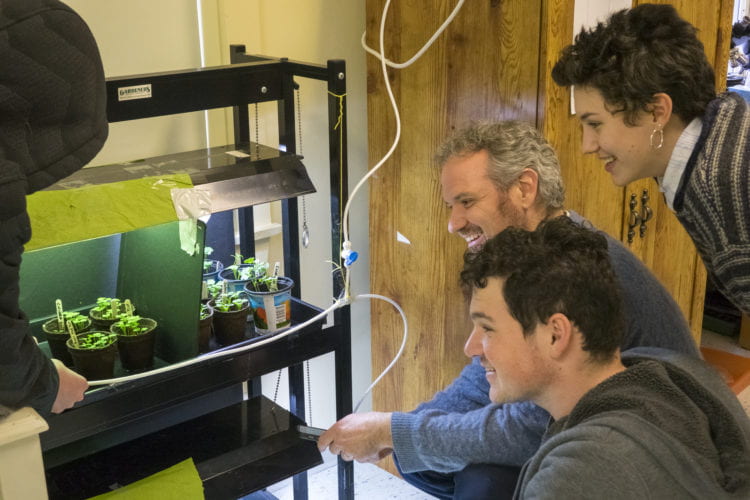 From Engaged to Agentive: Why is it Time to Raise Learning to the Next Level?
From Engaged to Agentive: Why is it Time to Raise Learning to the Next Level? Leveraging Epistemic Emotions to Cultivate Intrinsic Motivation
Leveraging Epistemic Emotions to Cultivate Intrinsic Motivation Deeper Learning Towards What?: The Nature of Deep Understanding
Deeper Learning Towards What?: The Nature of Deep Understanding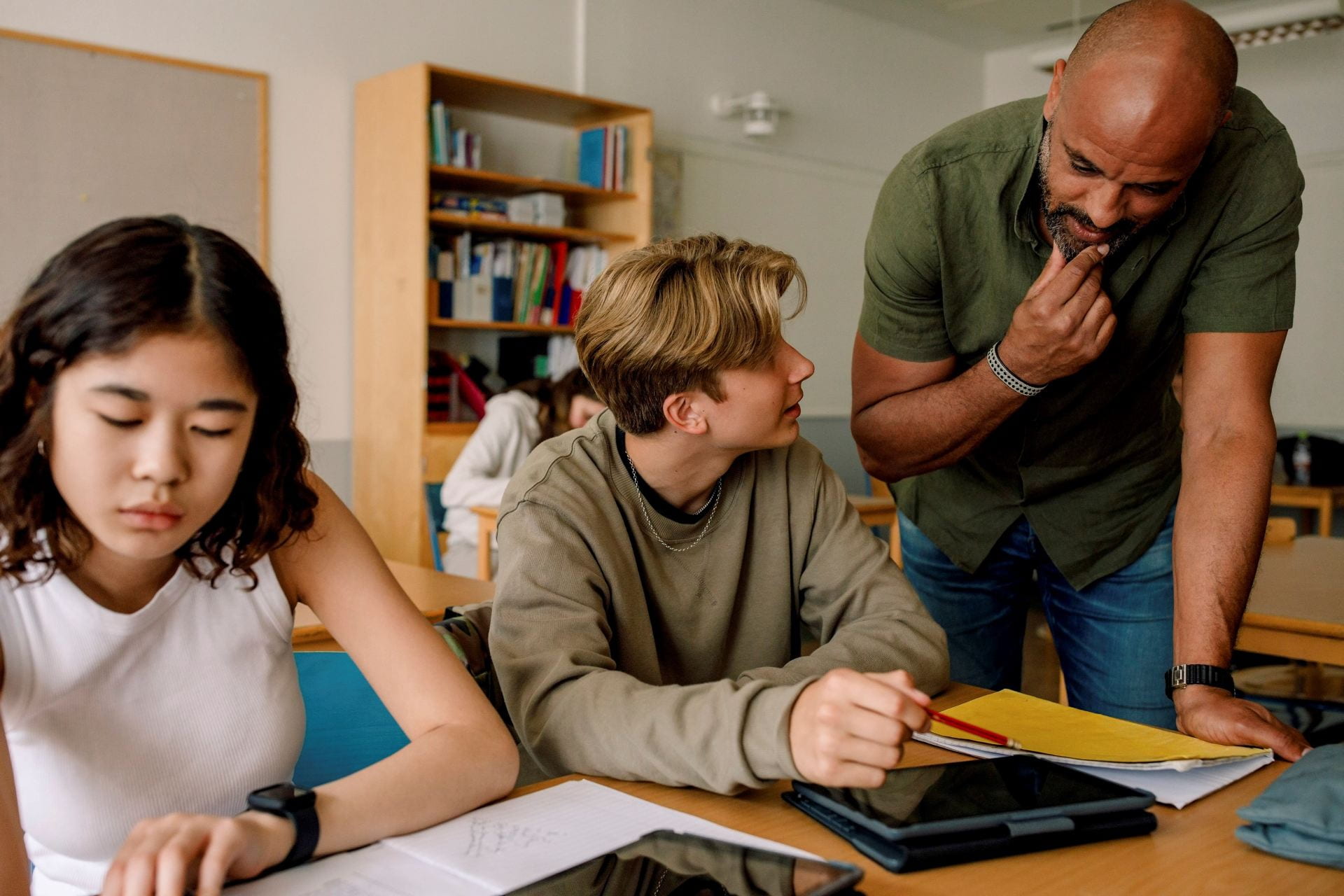 Dripping Water Wears Through Stones: Small Changes to Bring Your Teaching to the Next Level
Dripping Water Wears Through Stones: Small Changes to Bring Your Teaching to the Next Level The Icing on the Cake: How Metacognition Enhances Learning
The Icing on the Cake: How Metacognition Enhances Learning Leveraging Learners’ Agency for Enhancing the Process of Feedback
Leveraging Learners’ Agency for Enhancing the Process of Feedback
Other Articles
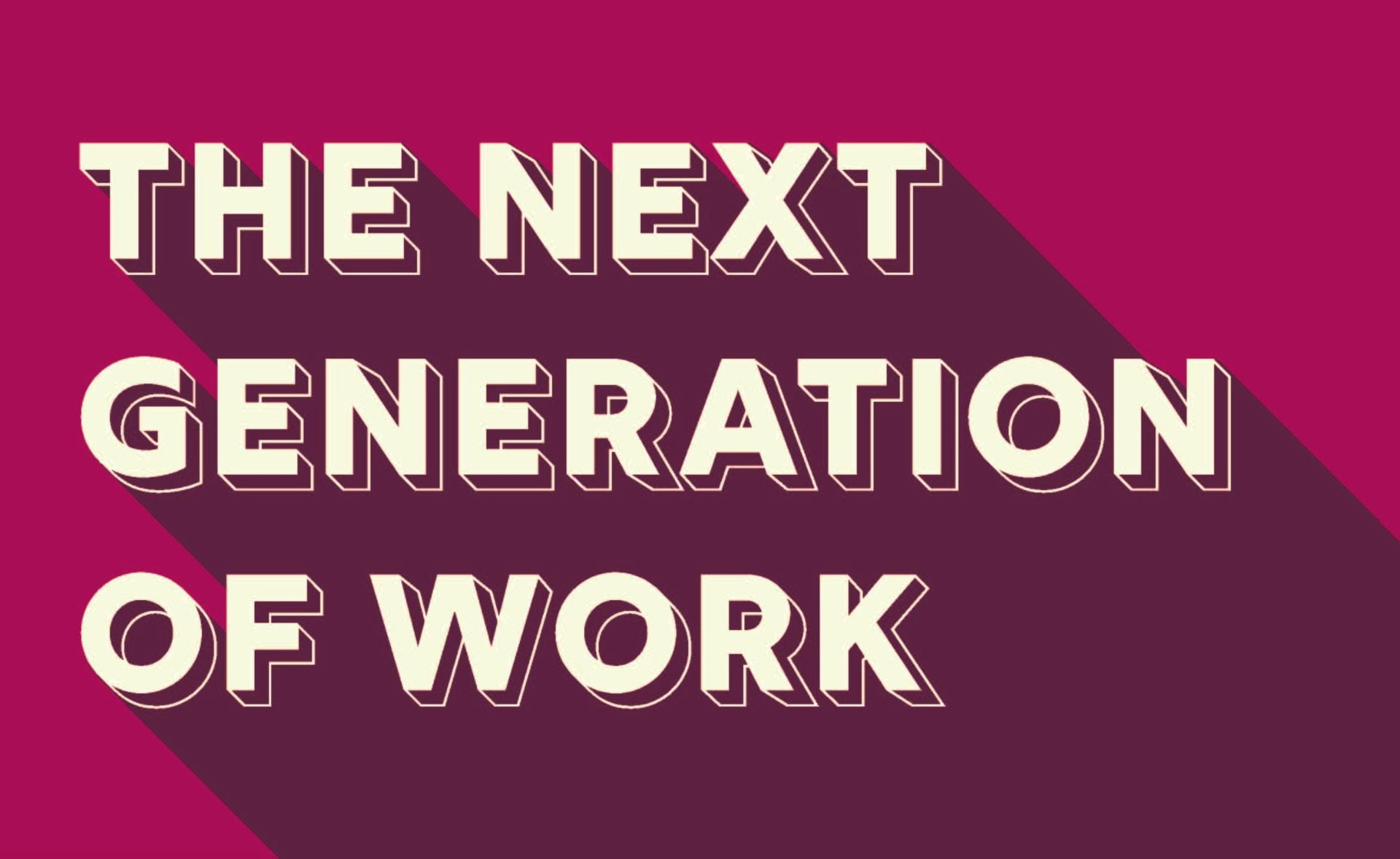
The Human Centered Future of Work(force Development)
Making Lemonade from Lemons: Pandemic-Driven Improvements in Workforce Instruction and Training
Resources
A User’s Manual to Our Minds: A Set of Self-Guided Courses to Support Learning and Work Performance

We are developing a set of four self-guided courses that draw upon a “fast fish” framing to explore how our minds work and the implications for learning and work performance. Each course includes a collection of modules which can either be done individually or can provide the basis for group sessions and discussions. New modules will launch as they are ready.
Standalone Modules

Developing Fast Fish Learners: A New Way to Think About the Teaching of Thinking and Learning
This session overview from the Project Zero Classroom Summer Institute presents a new way of conceptualizing the teaching of thinking and what it means to be a Next Level Learner.
Avoiding Amygdala Hijack: How it Hurts Learning and Performance and What Fast Fish Learners Can Do
This learning module for K-16 educators invites you to consider the experience of amygdala hijack, what it is, and research on what is known about why it happens.
Harnessing the Power of Reflection for Learning in the Workplace
This learning module presents early findings from an NLL study that infused a reflection exercise into an existing internship program, inviting you into the research process and asking you to consider the implications for engaging learners in the workplace.
Allocating for Attentional Blink
This learning module for K-16 educators offers an overview of the nature of attention and dispels common myths to help you manage what you do and the contexts around you.
Tools and Resources
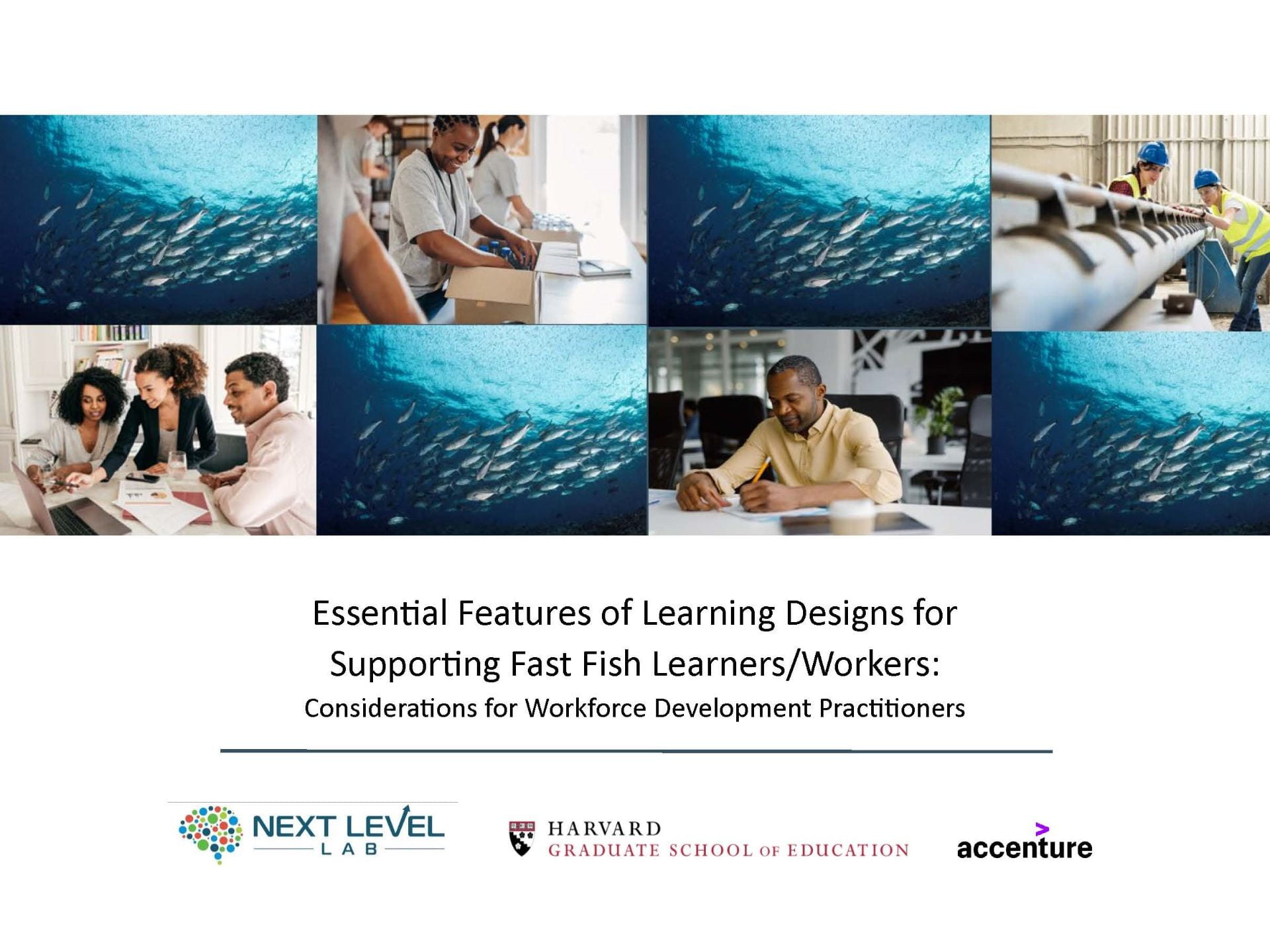
Essential Features of Learning Designs for Supporting Fast Fish Learners/Workers
Attitudes and Moves for Fast Fish Learners/Workers
In What Ways Is Your Workplace a Learning Organization? A Reflection and Planning Inventory
Transferring Existing Skills and Knowledge into New Roles at Work: A Coaching Guide
Metacognition in Design and Design Education
Reflecting on Your Learning in the Workplace
News
-
Workshop Materials Available from the Project Zero Classroom Summer Institute
Recently, Tina Grotzer and Lydia Cao presented at the Project Zero Classroom (PZC) Summer Institute. The PZC draws educators from all over the world to Cambridge to spend a week learning about emerging ideas to support the best learning and performance. This year, Grotzer gave a plenary session on educating for climate change. She stressed…Continue…
-
What’s Missing from a Skills-Only Approach to Workforce Development?
In a new piece for The EvoLLLution, NLL researchers Tessa Forshaw, Rodrigo Madeiros, and Dr. Eileen McGivney argue that Next Level Learning requires changing how workforce challenges are approached, from looking only at skills to a triadic approach that looks at the learner’s skills, identity and context. You can read the full article at this…Continue…
-
Studying the Effectiveness of Situated Agency in Leveraging the Power of Reflection: A New Way to Make the Most of Metacognition
Most of us have been asked to engage in reflection in our workplaces at some point, but many of us struggle with knowing what to reflect on and how to do it effectively. …Continue Reading Studying the Effectiveness of Situated Agency in Leveraging the Power of Reflection: A New Way to Make the Most of…
